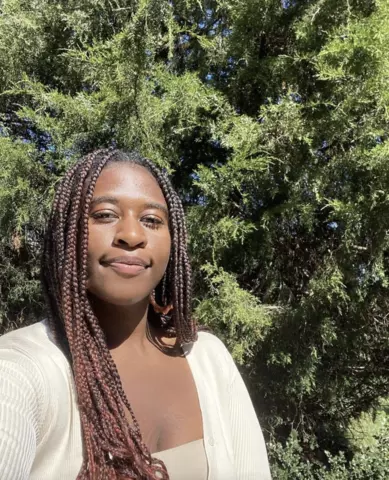Saudia Durrant

Saudia Durrant has worked in community organizing, advocacy and campaign strategizing within the Philly labor, race, and gender justice movements for the last nearly decade. She began organizing with the labor justice movement to win a collective bargaining agreement with food service workers in the PHL International Airport in 2012. She graduated from Temple University with a bachelor's degree in Journalism obtained in 2015.
In 2017, she started working as a youth organizer for the Philadelphia Student Union, where she spent 4 years supporting black and brown youth in campaign organizing and leadership development around educational justice campaigns. She then worked as a racial justice organizer with the Abolitionist Law Center. She supported formerly incarcerated people in PA state correctional institutions as well as the Philadelphia Jail system working to end solitary confinement and other forms of torture and abuse within the mass incarceration system. She continued pursuing abolitionist centered work through managing a program for gender marginalized communities impacted by the prison and probation systems, for policy advocacy and service provision to restore and rehabilitate.
She now works as a senior campaign strategist with the next generation, multi-racial civil rights organization, Advancement Project.
Presentations from Facing Race 2022
Incorporating the concept of Sankofa, timelines help us to understand how our struggle for education justice has developed over time, connect our organizing to other movements, and assess the future of our struggle. This workshop will present the National Campaign for Police Free Schools’ (convened by the Alliance for Educational Justice and the Advancement Project National Office) timeline and assessments on school policing over the past 80+ years, understanding that abolition is a multi-generational project.
School policing is inextricably linked to this country’s long history of oppressing and criminalizing Black and Brown people and represents a belief that people of color need to be controlled and intimidated.
The timeline demonstrates that the school-to-prison pipeline was a delayed response by the state to Black and Brown student organizing, and is an extension of the laws, policies, and practices of street policing in Black and Brown communities. As we began to form a movement to end the school-to-prison pipeline, as we began to win (ending zero-tolerance policies, acquiring suspension and arrest data, securing pilot restorative justice programs and funds) the system adjusted, increasing police presence in schools.
Workshop participants will understand this history, reflect on their own personal timelines as history makers, and reflect on future trends in school policing as the system continues to adjust – including the rapid expansion of school surveillance as part of the school policing infrastructure.